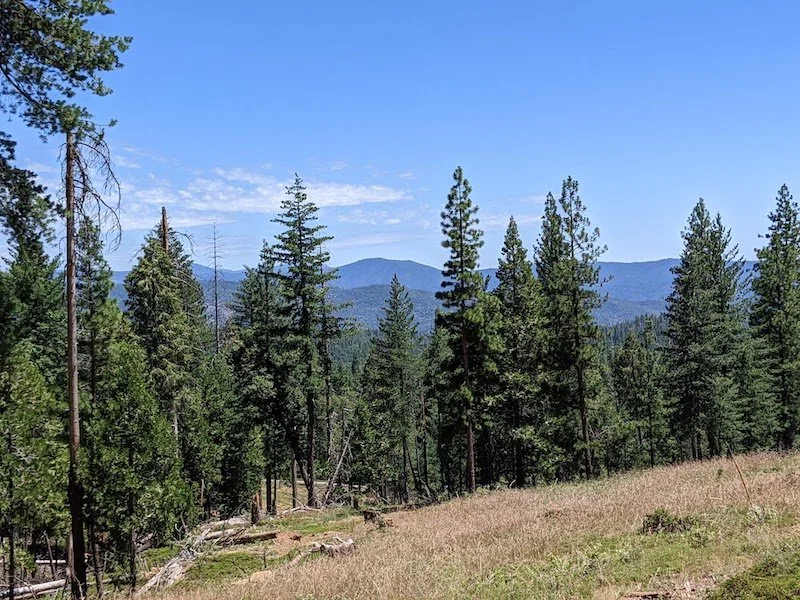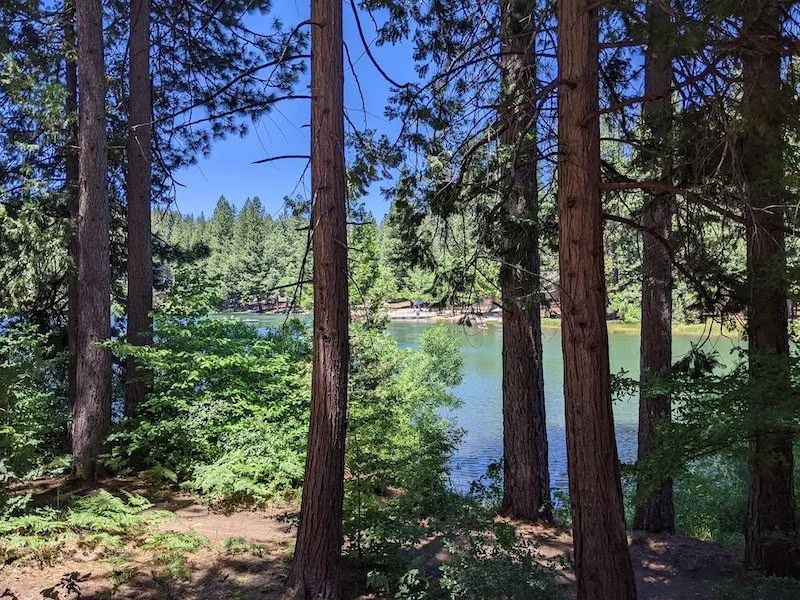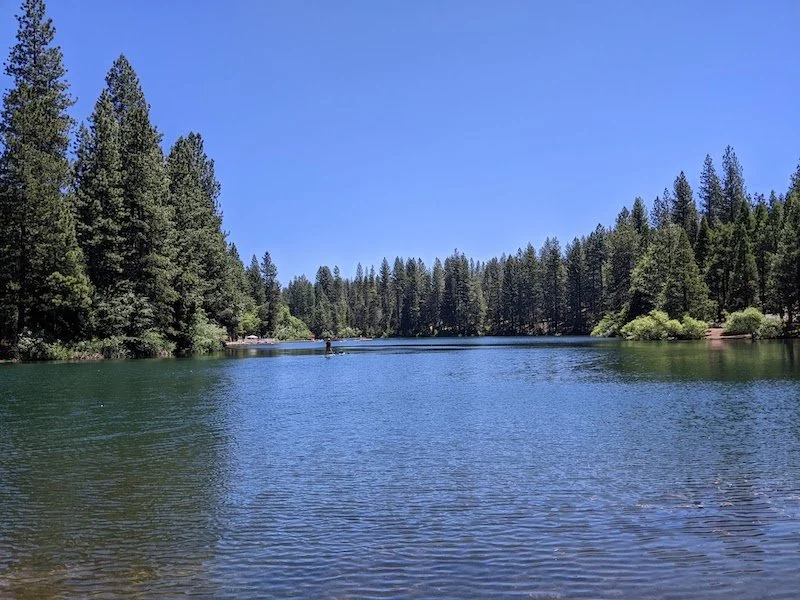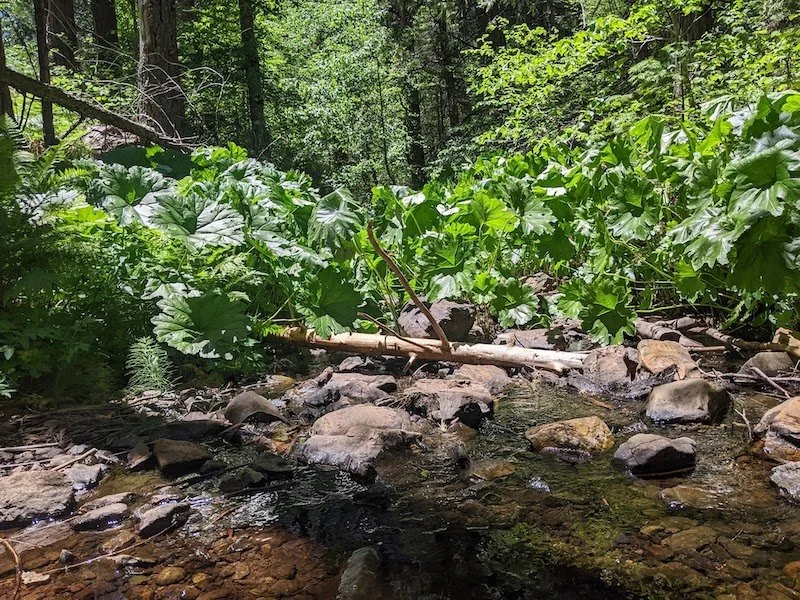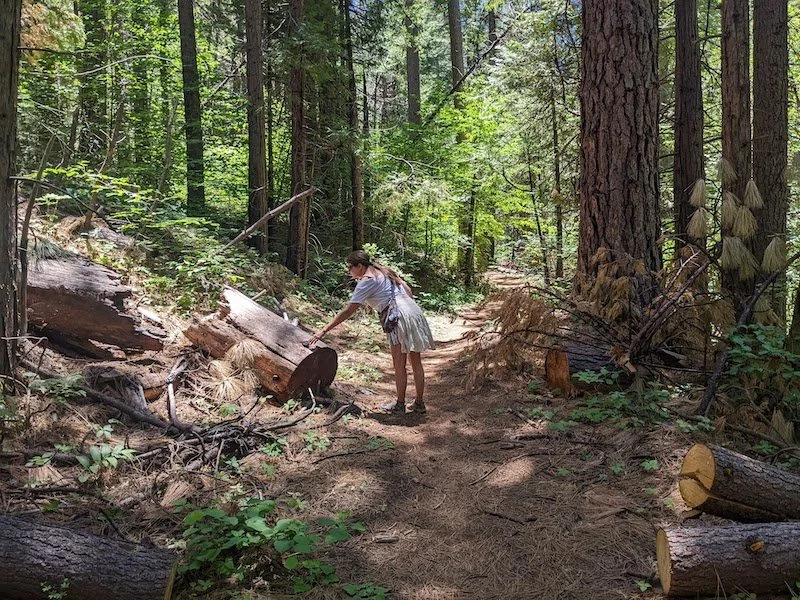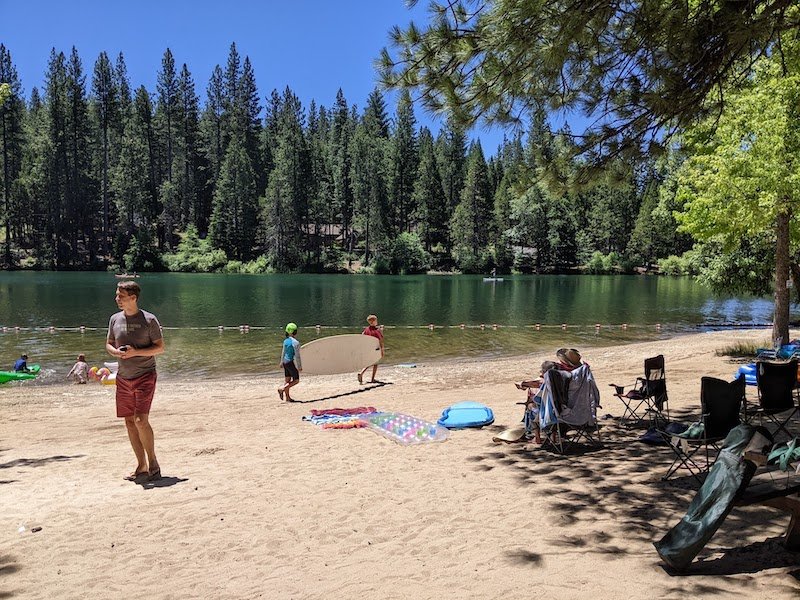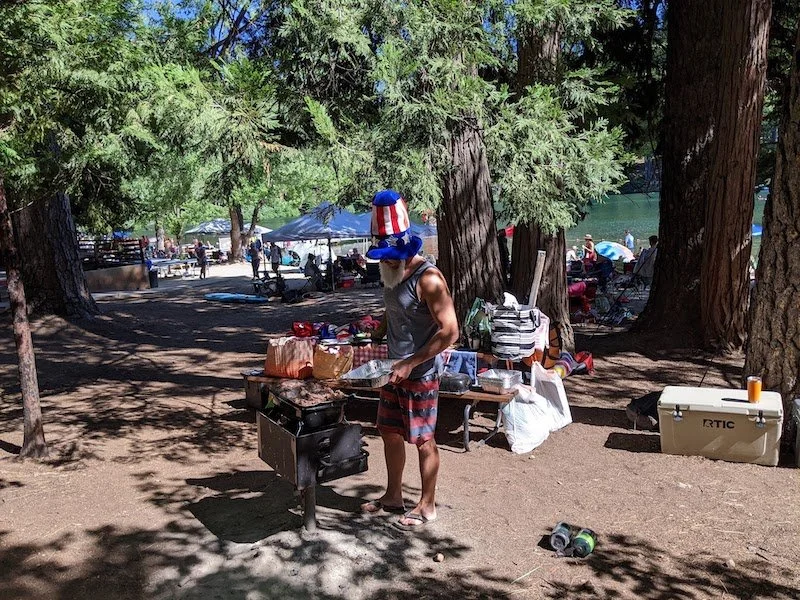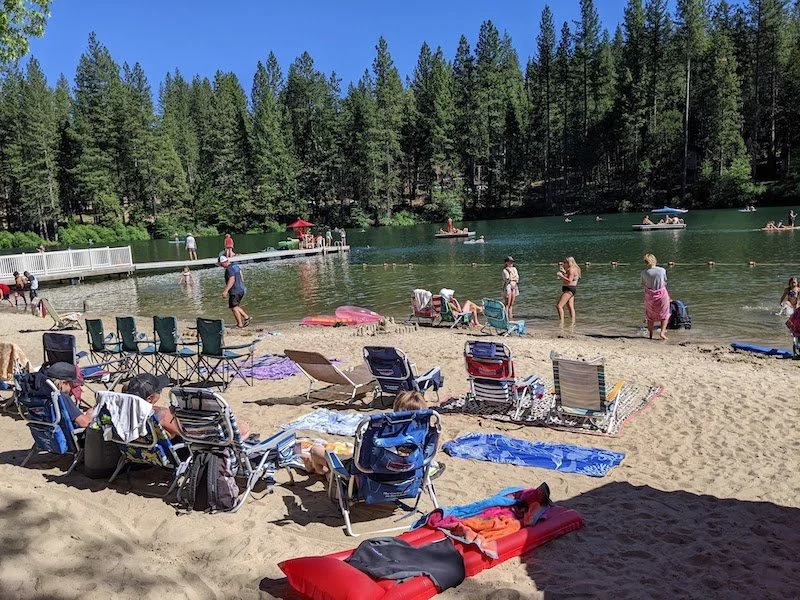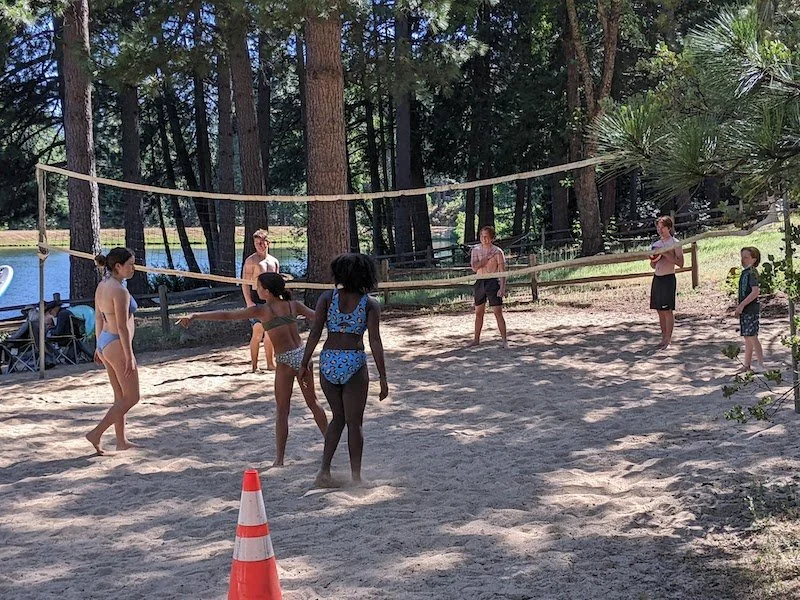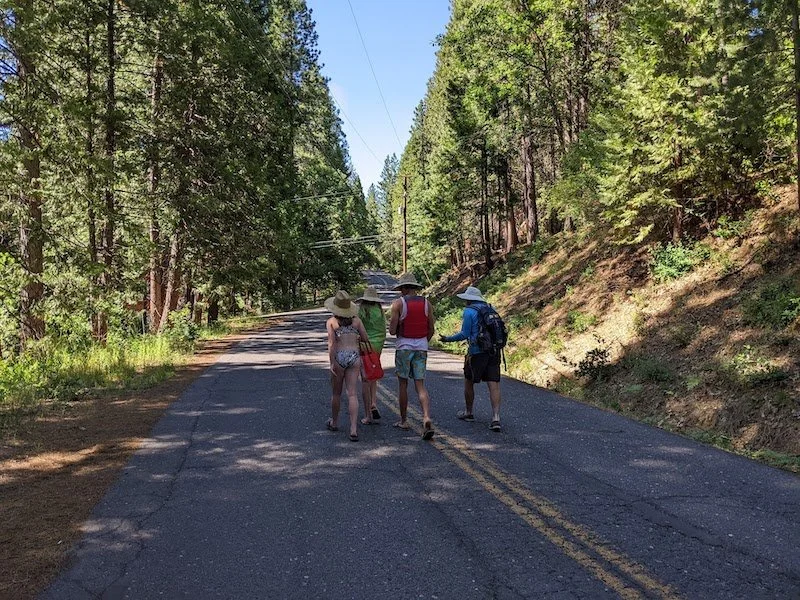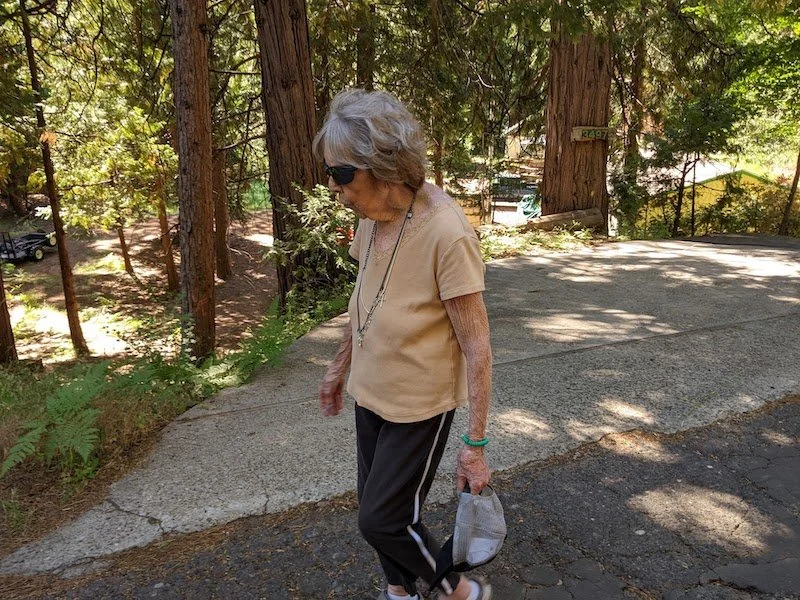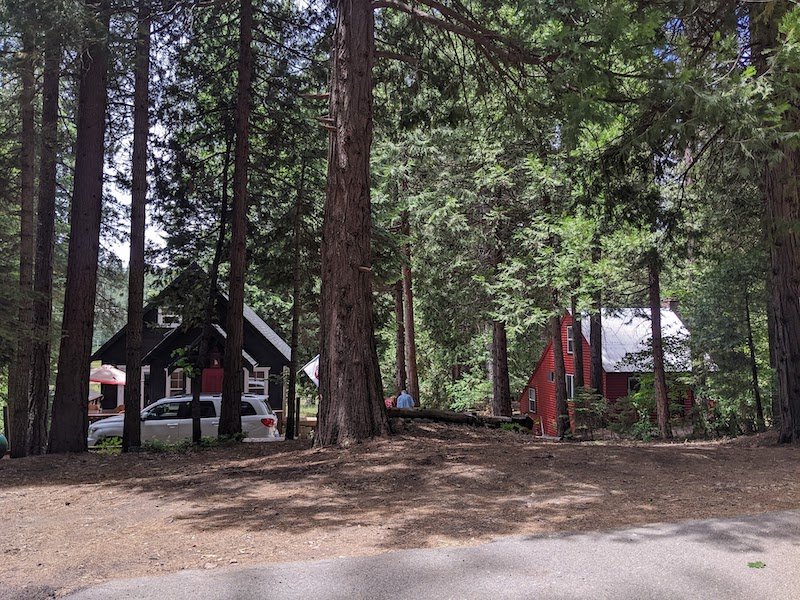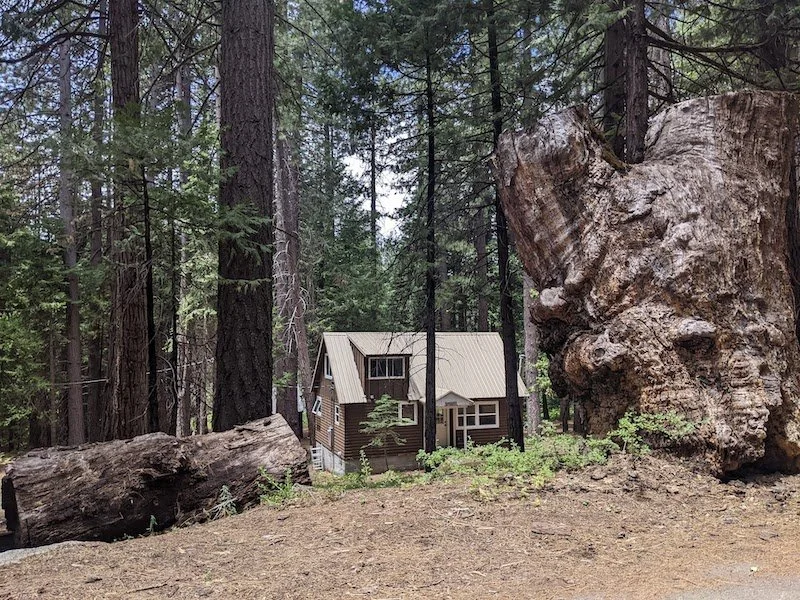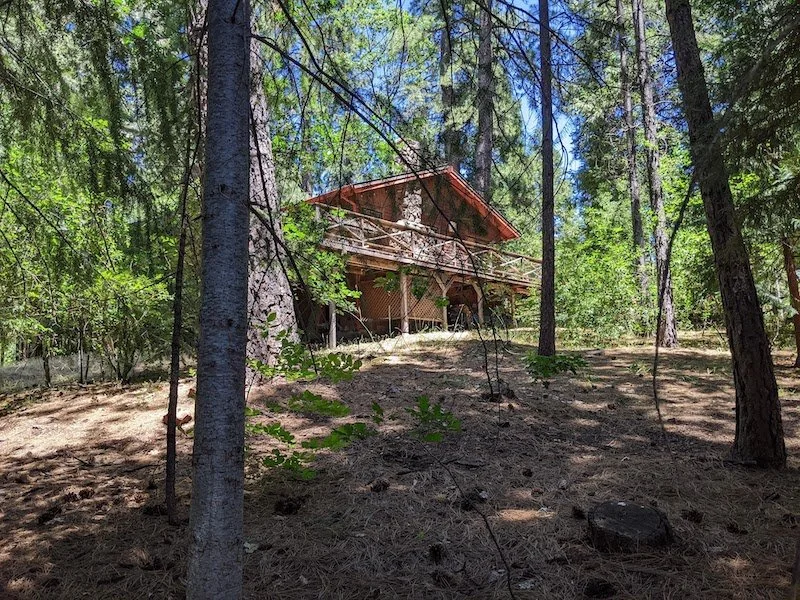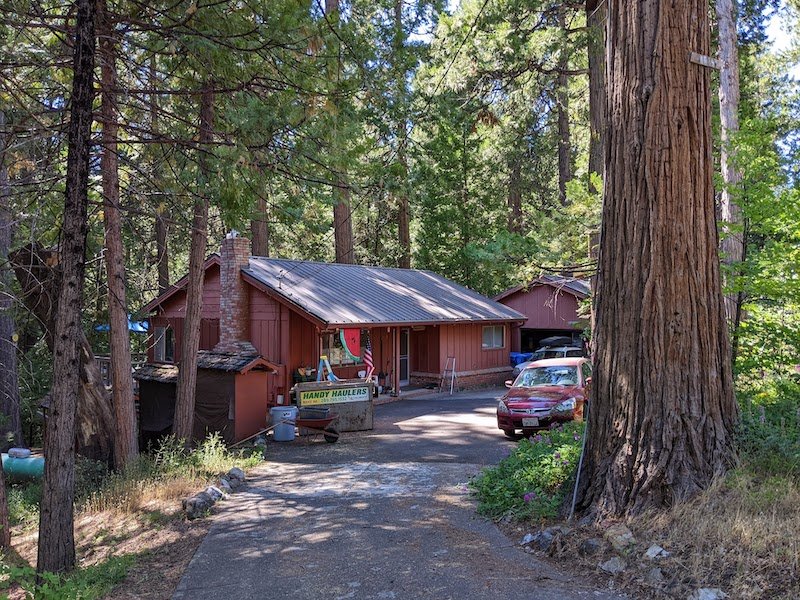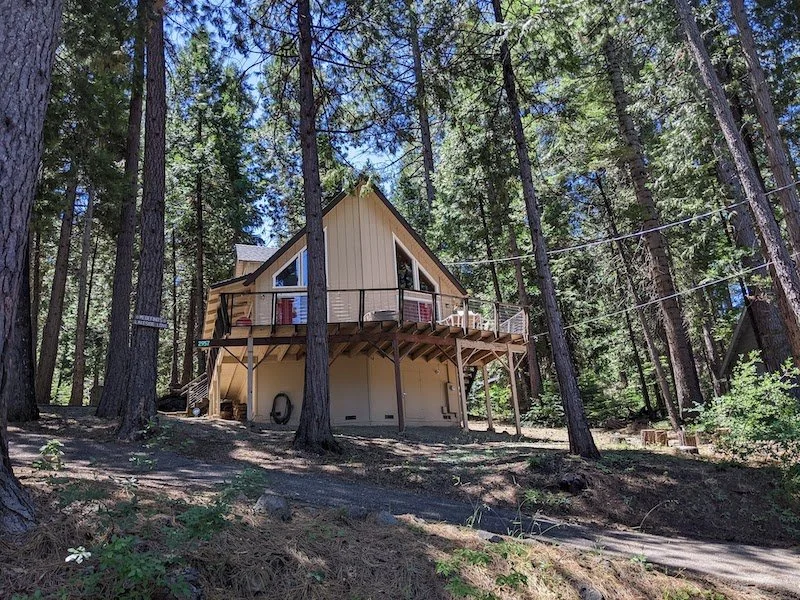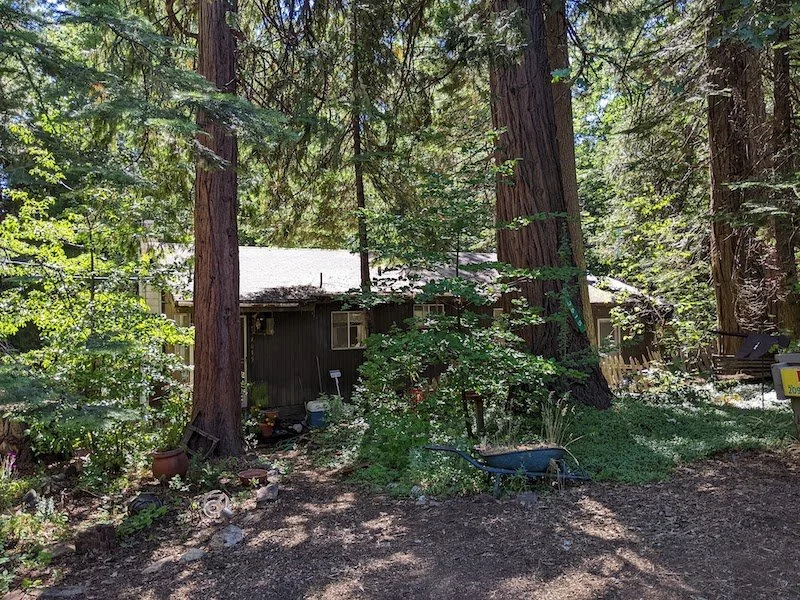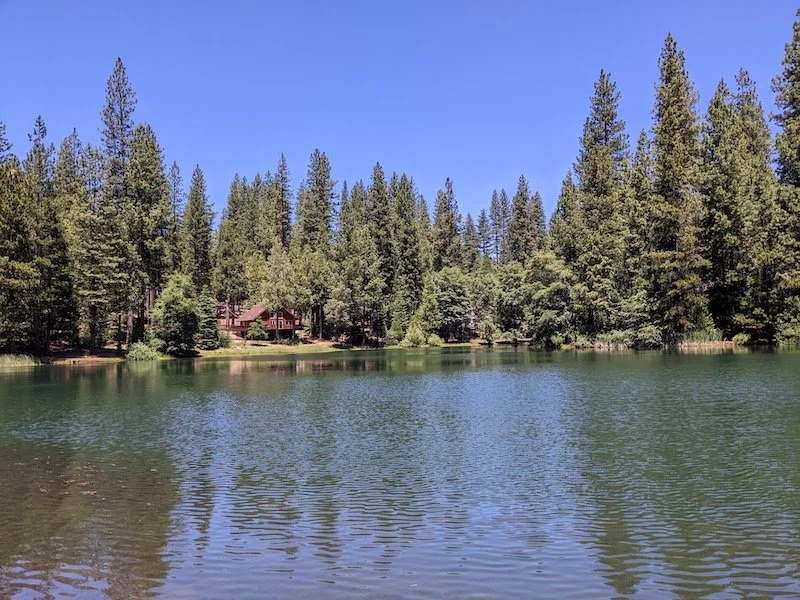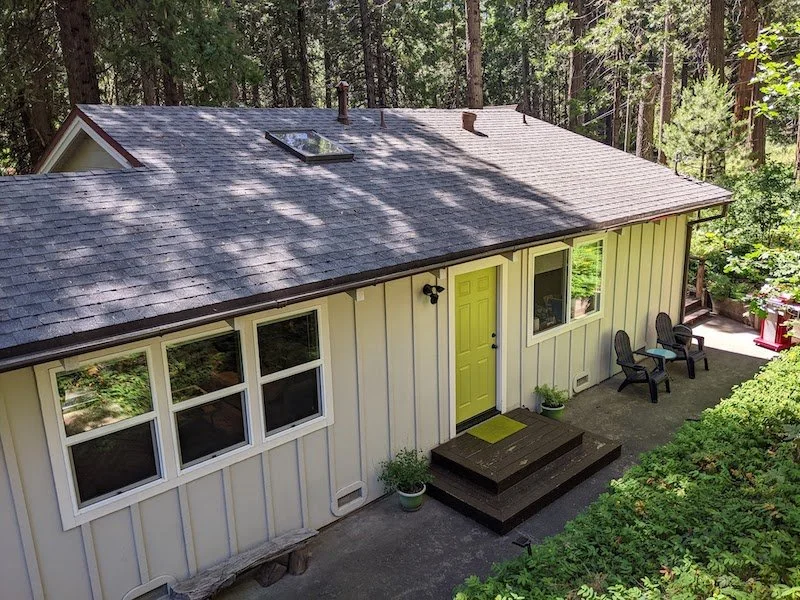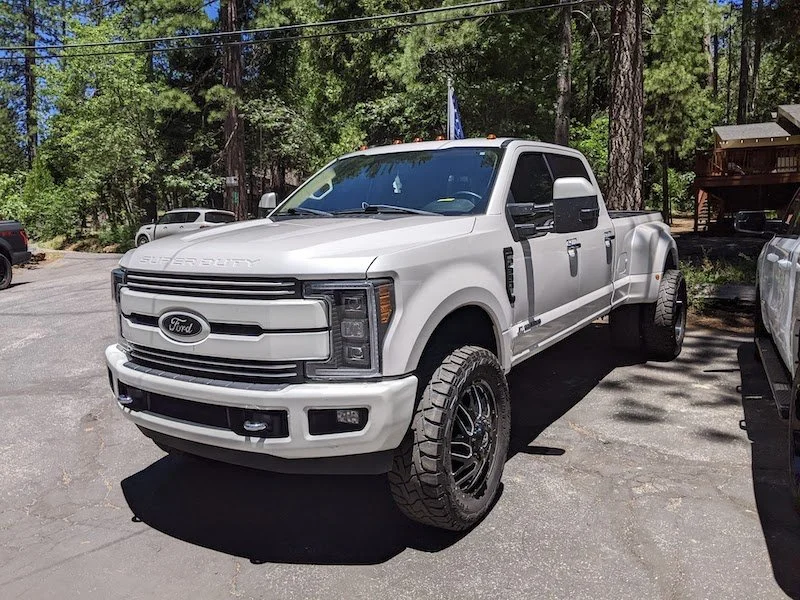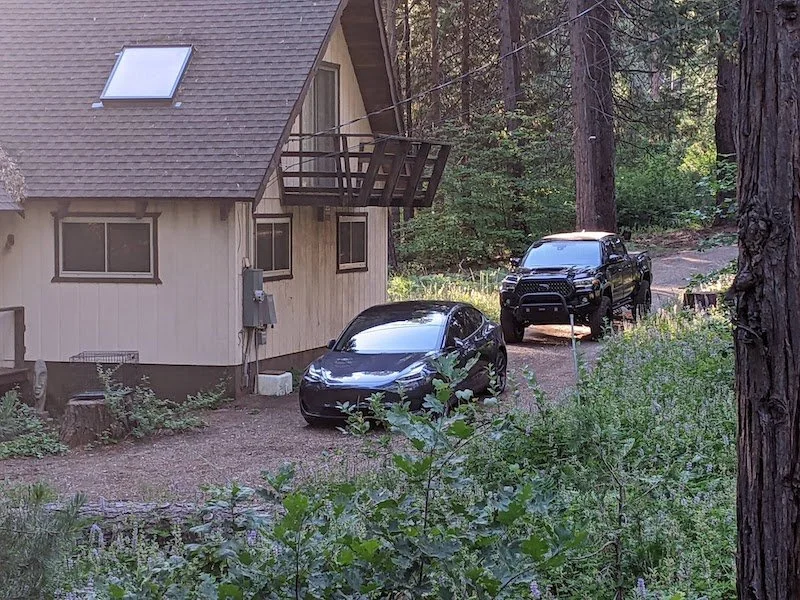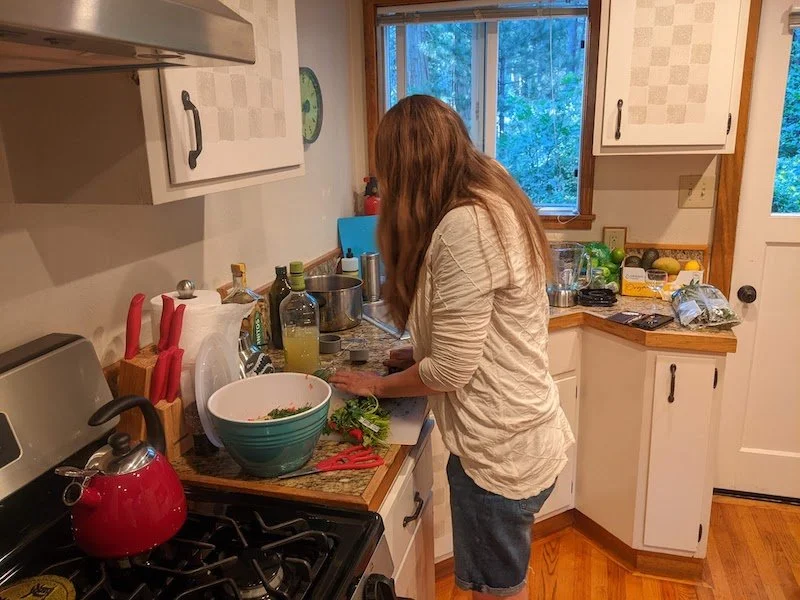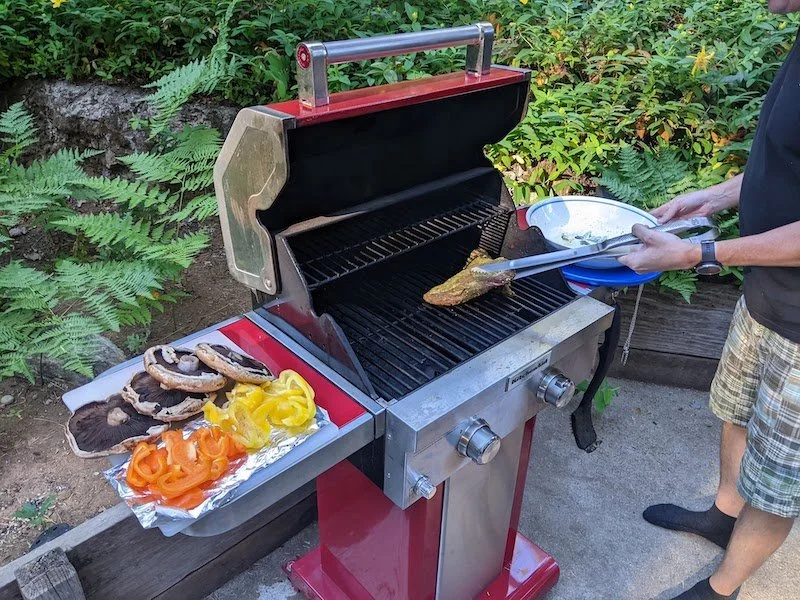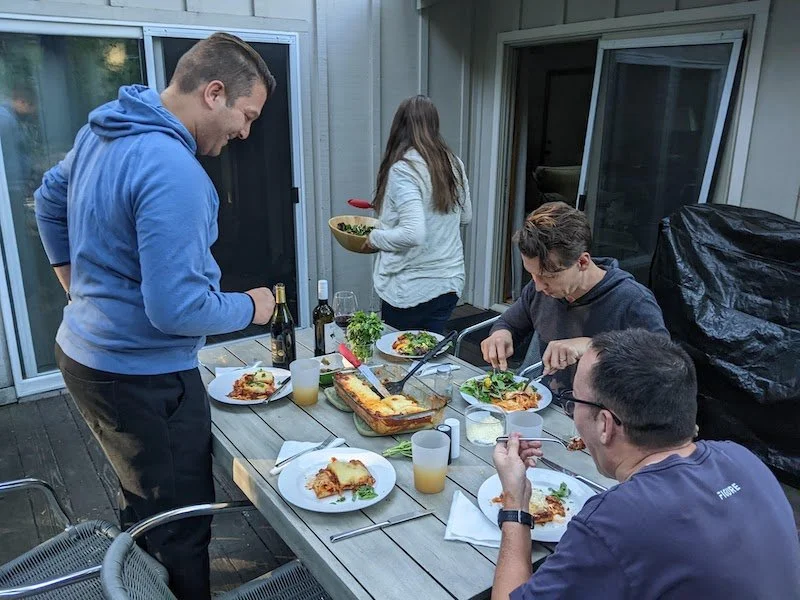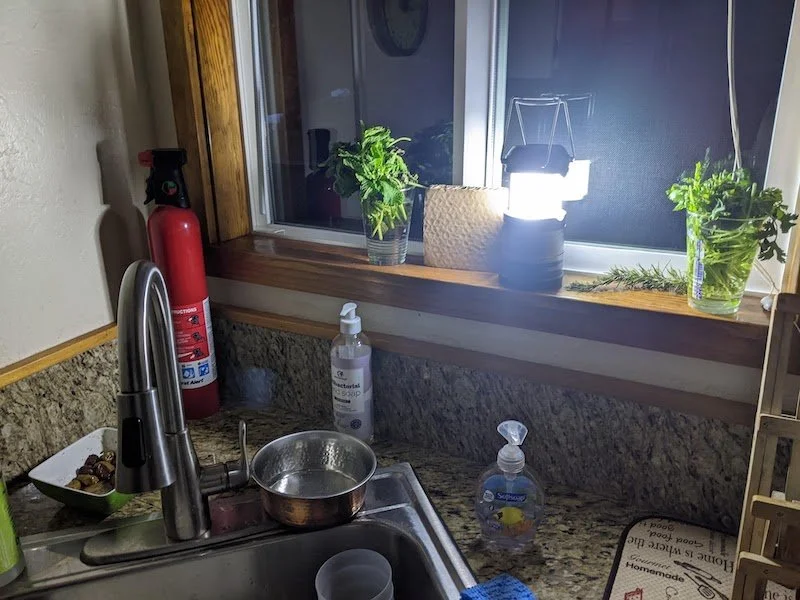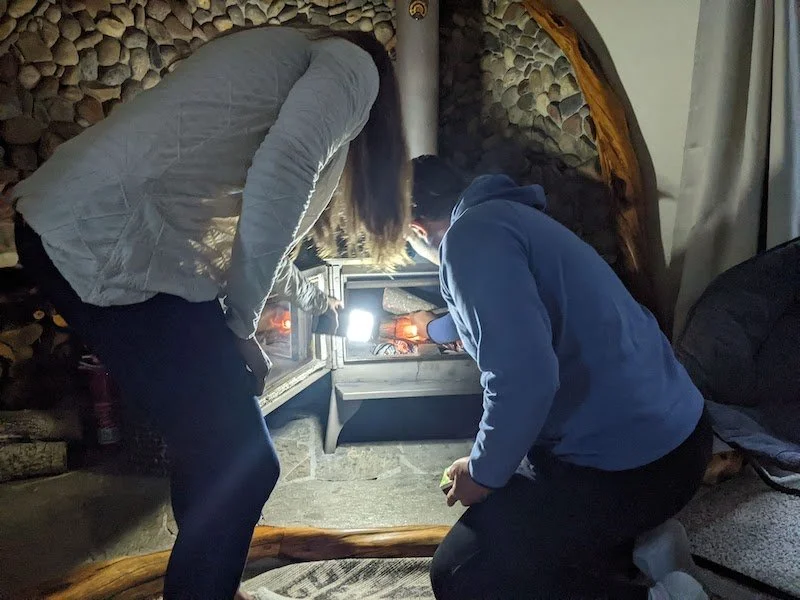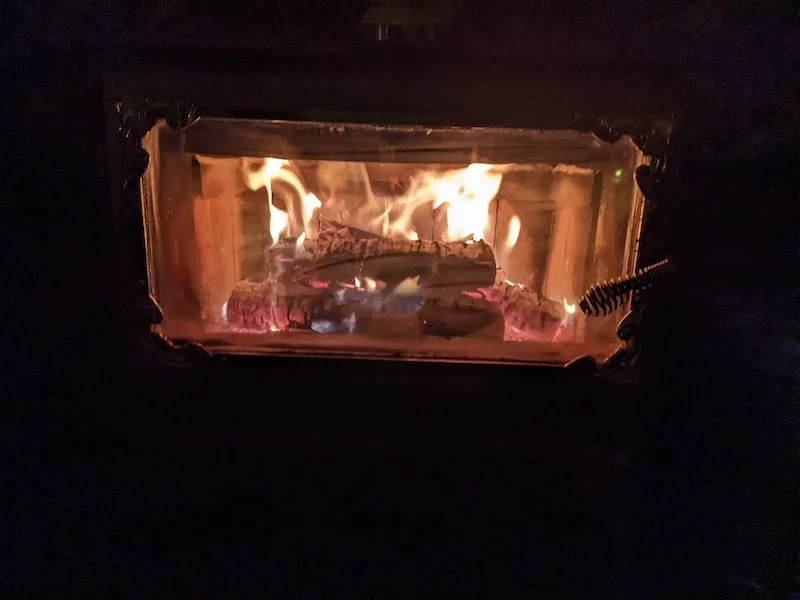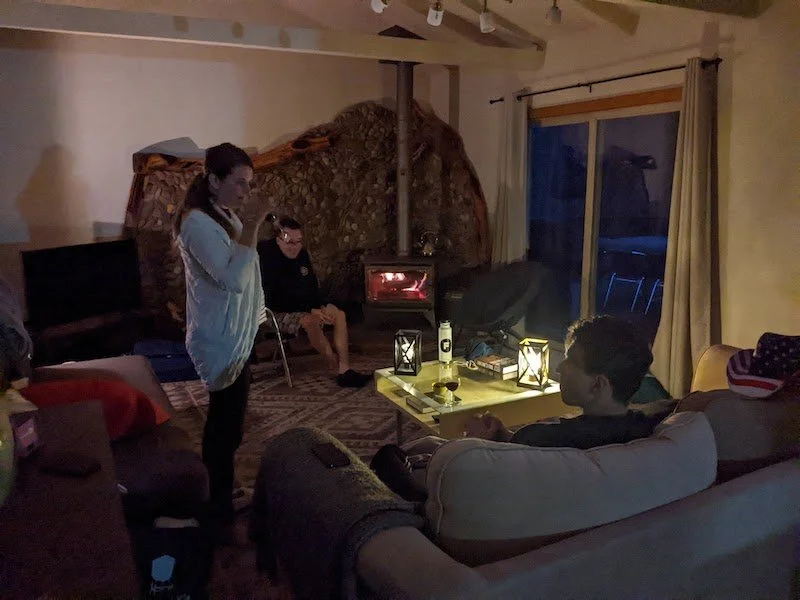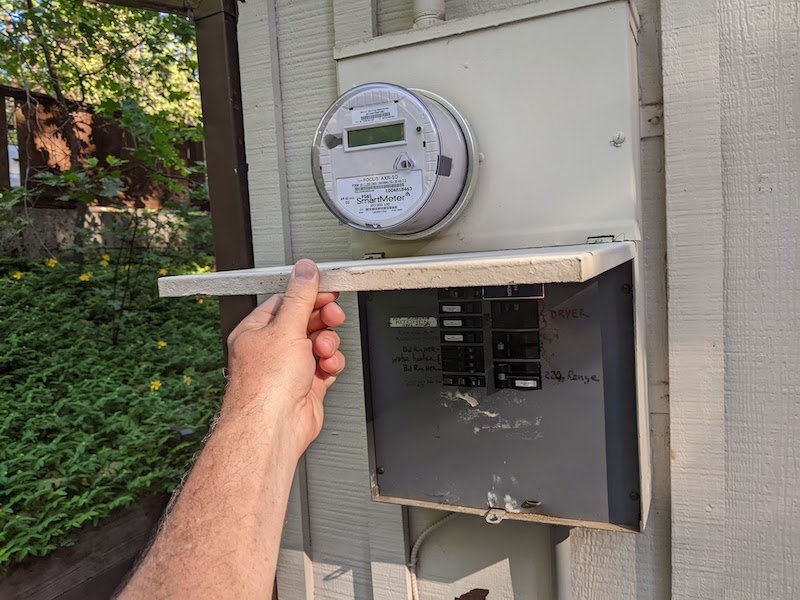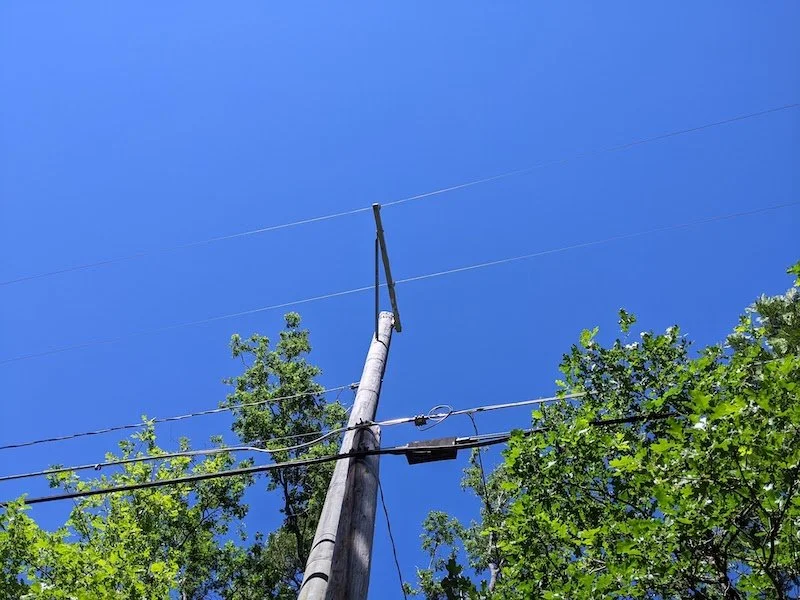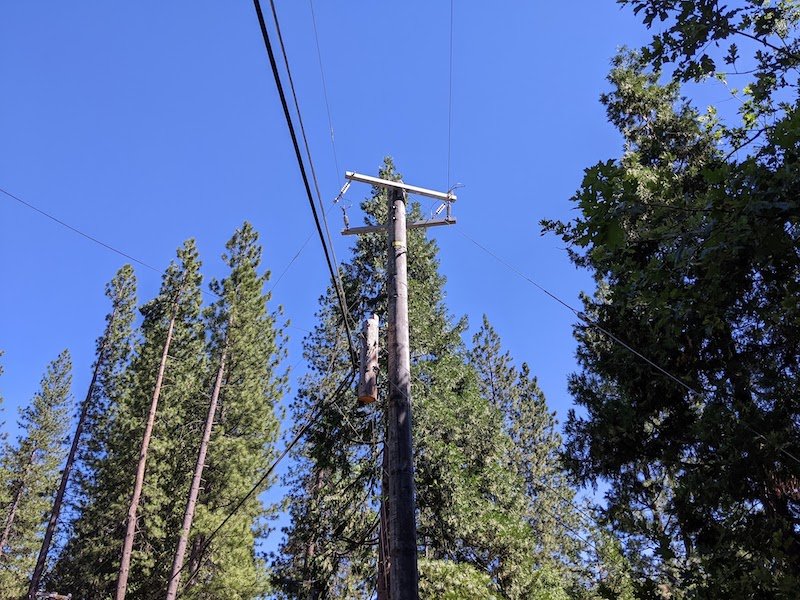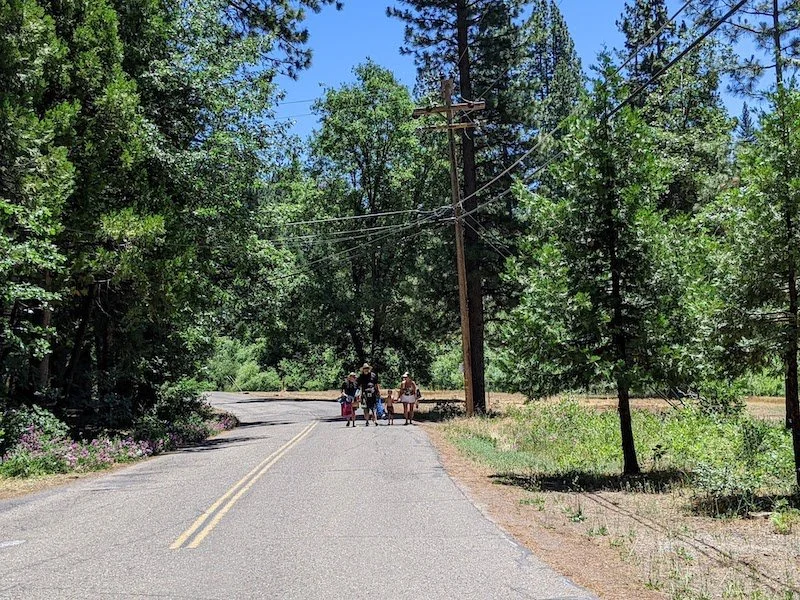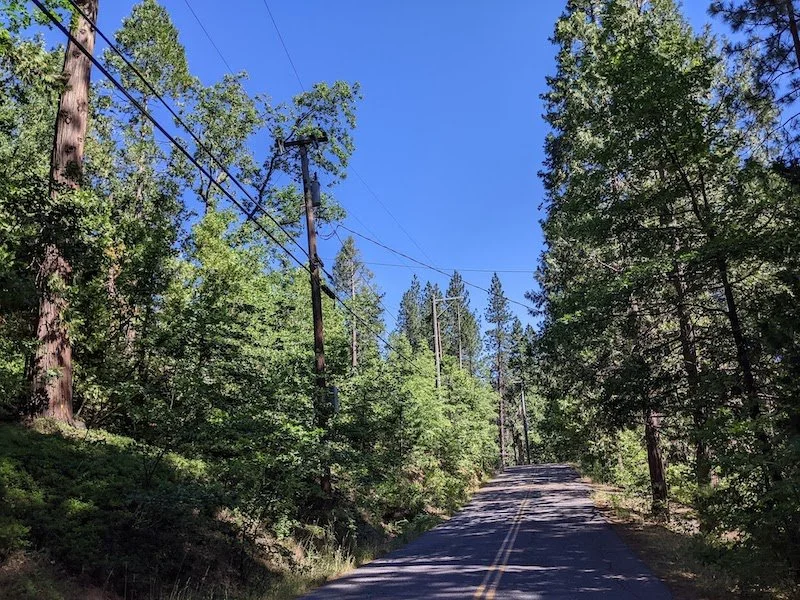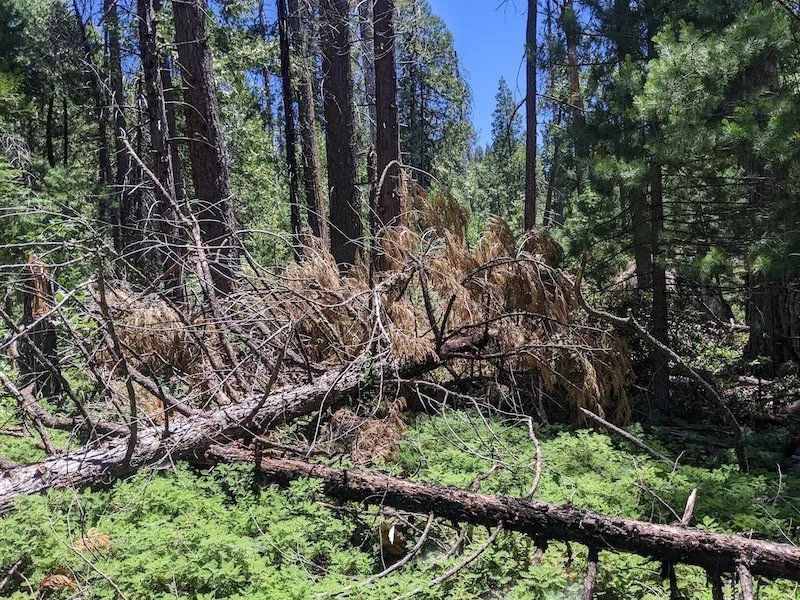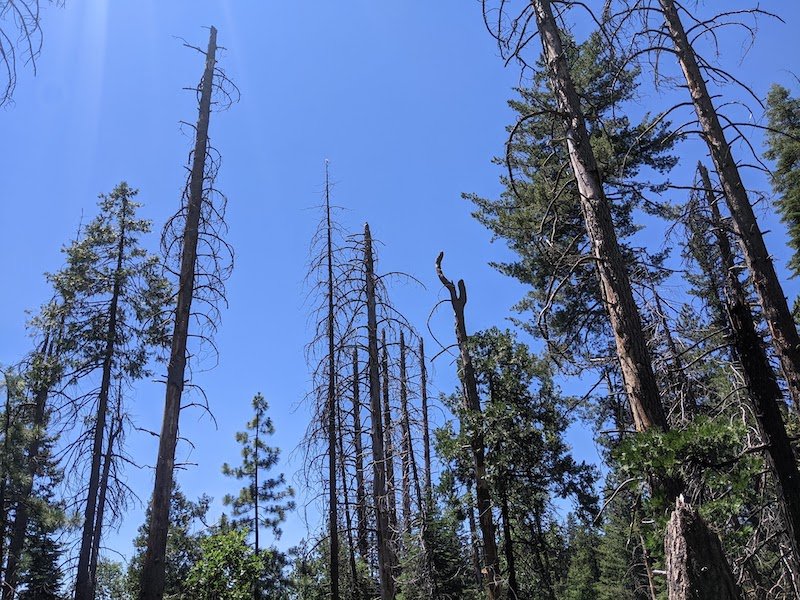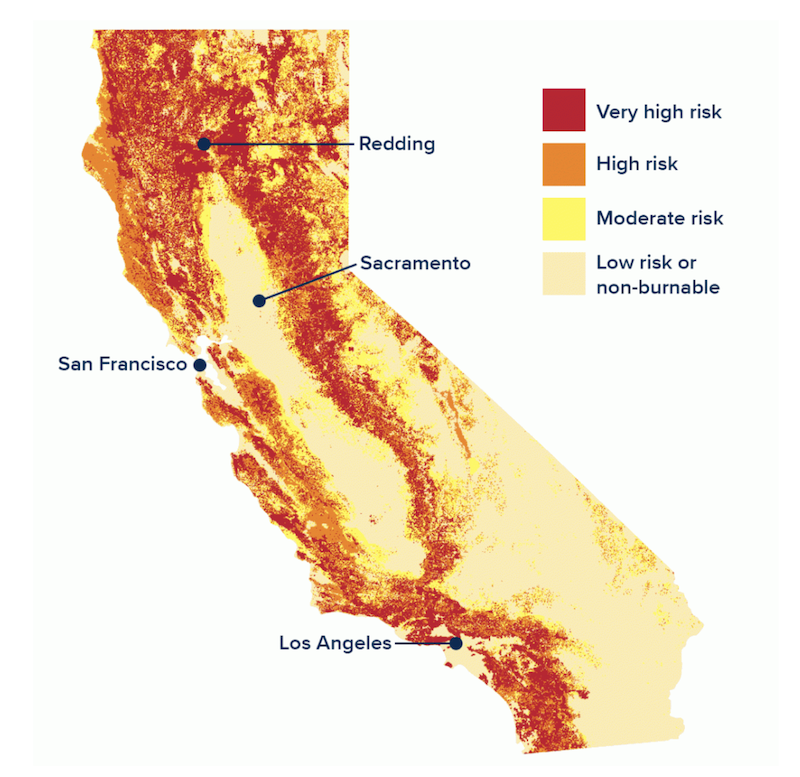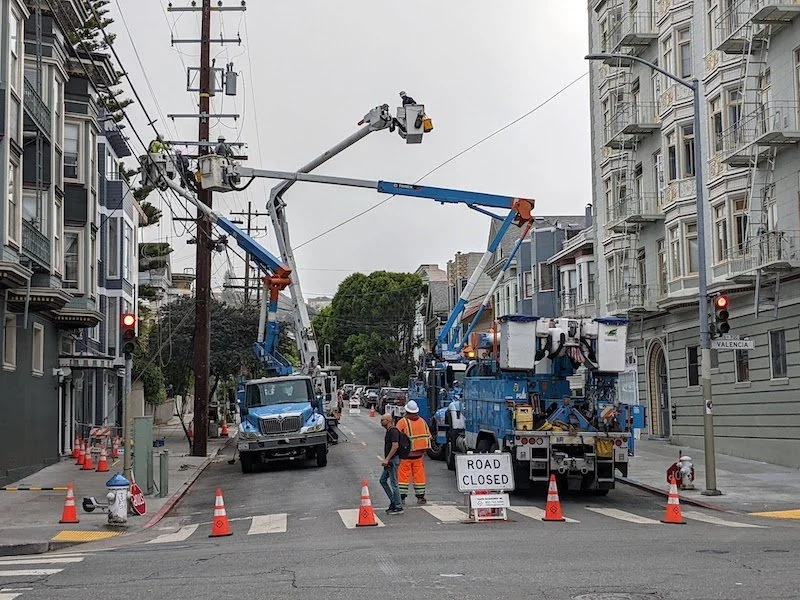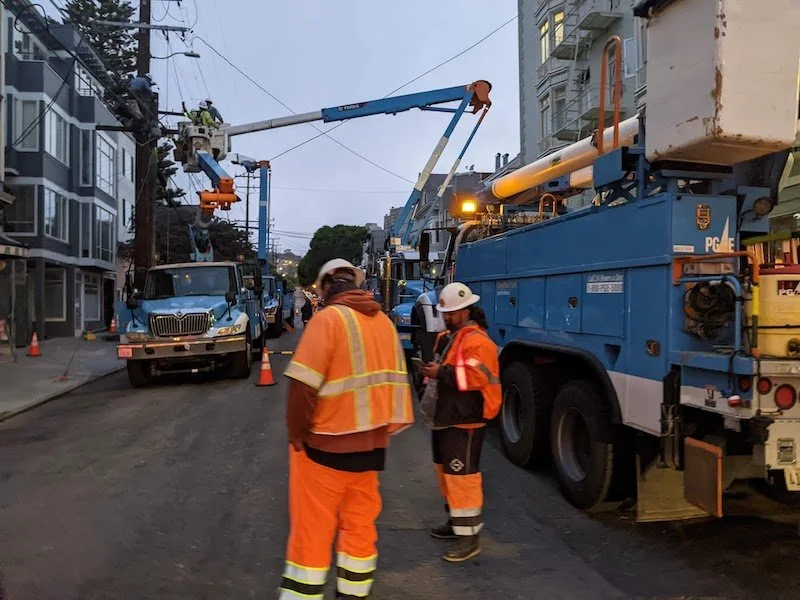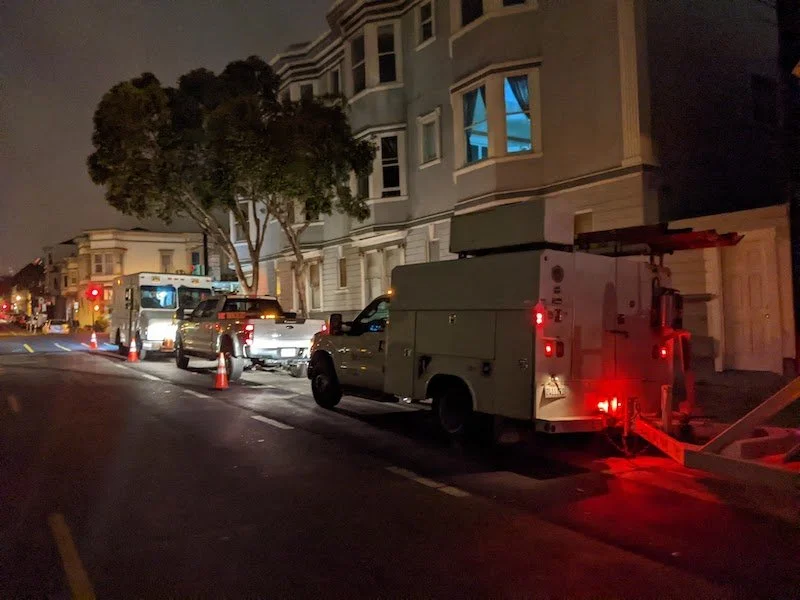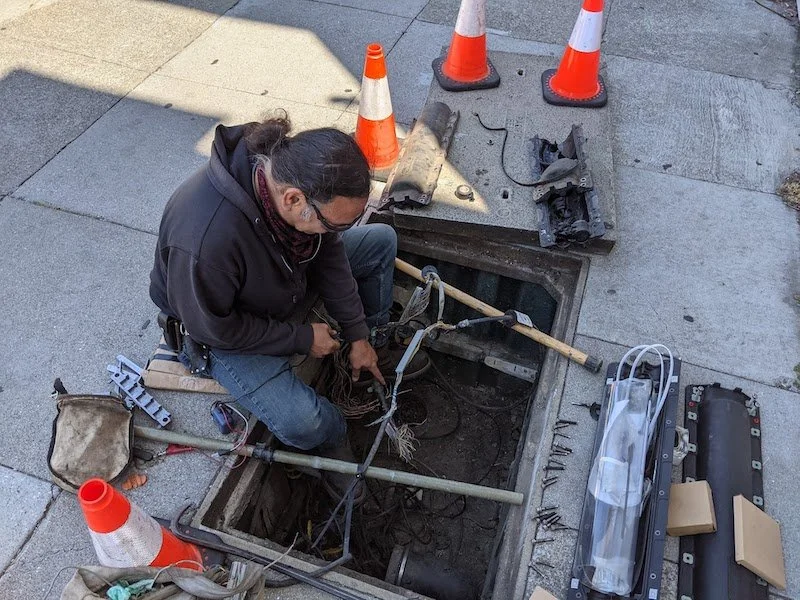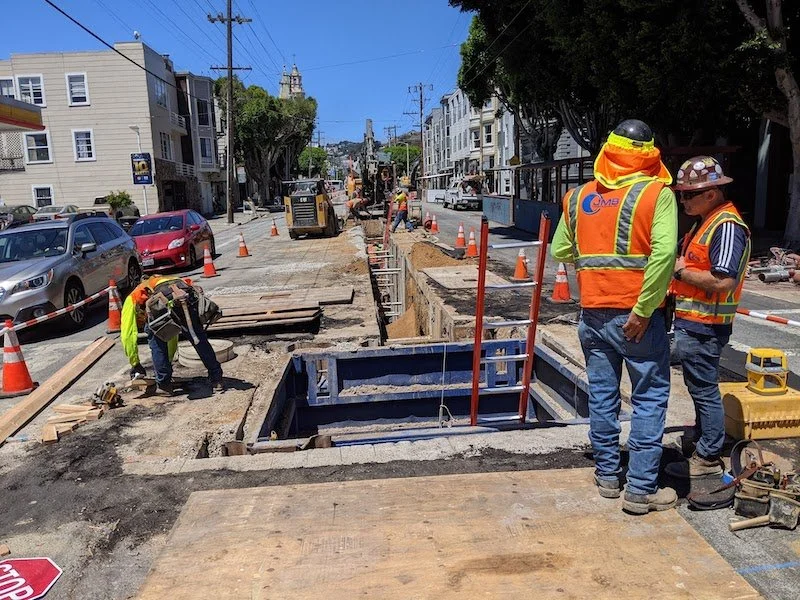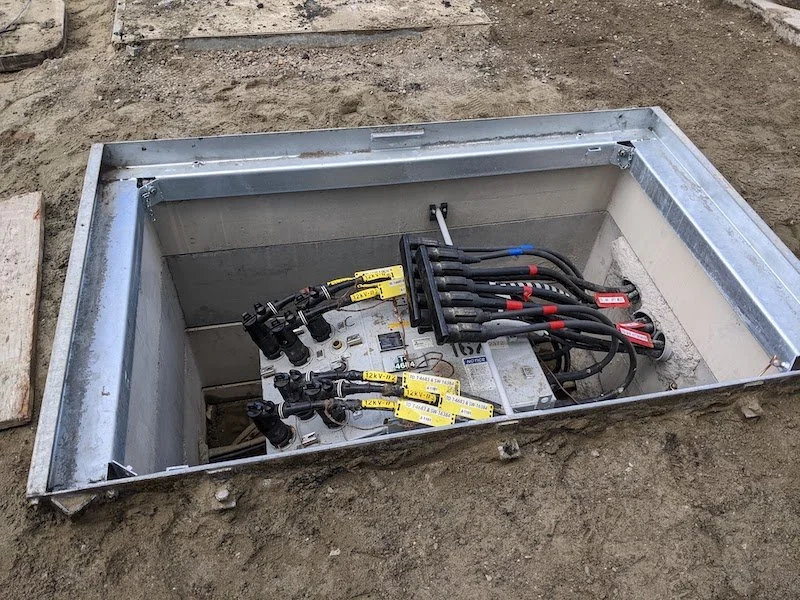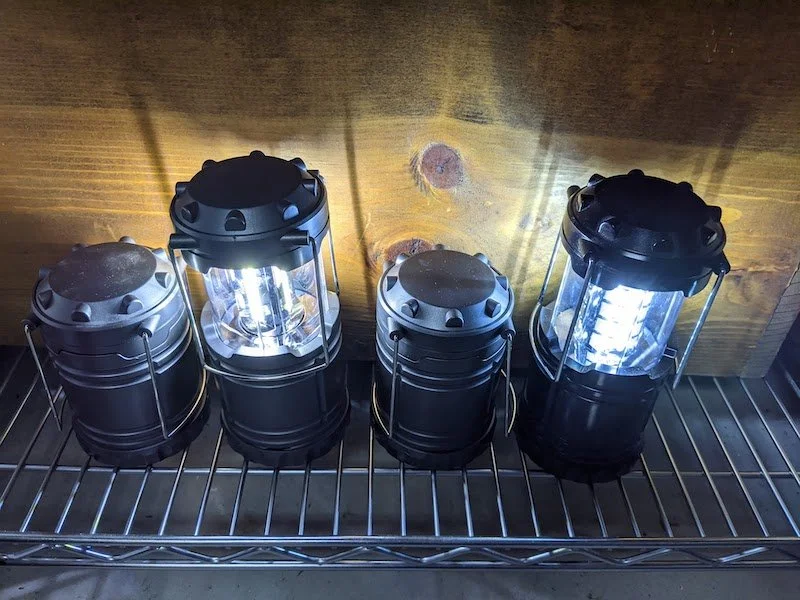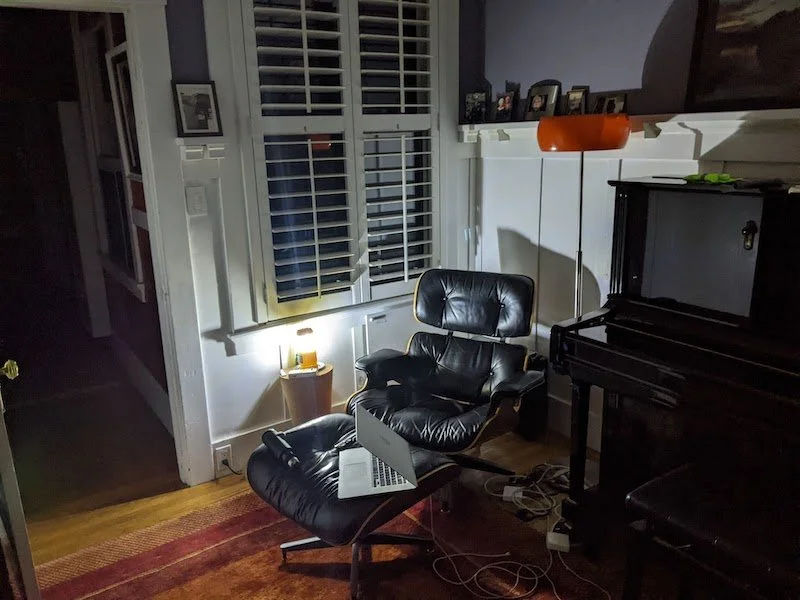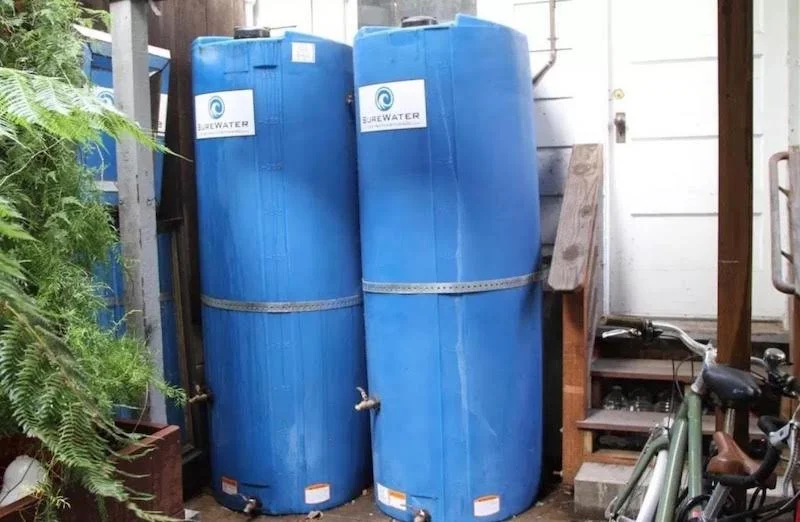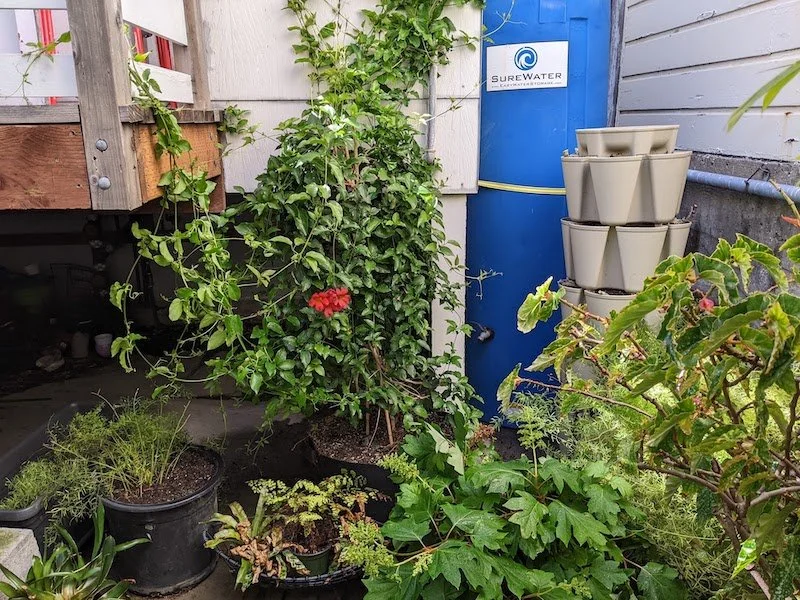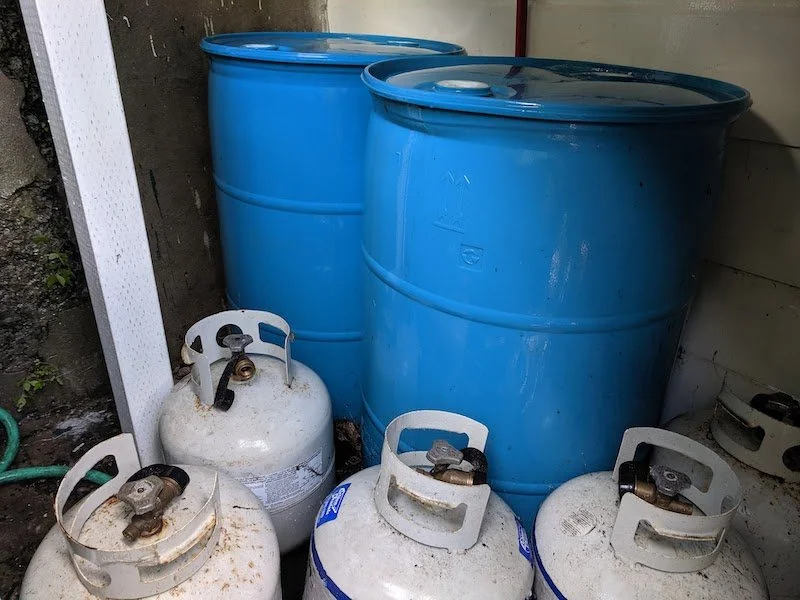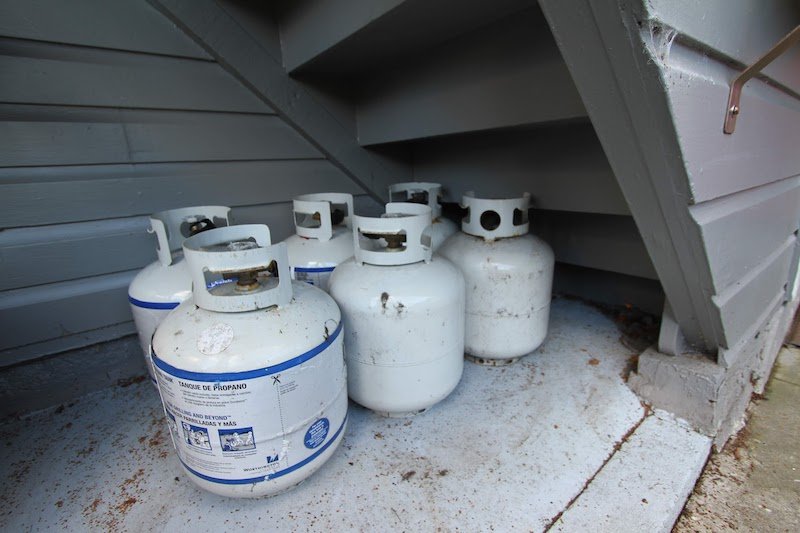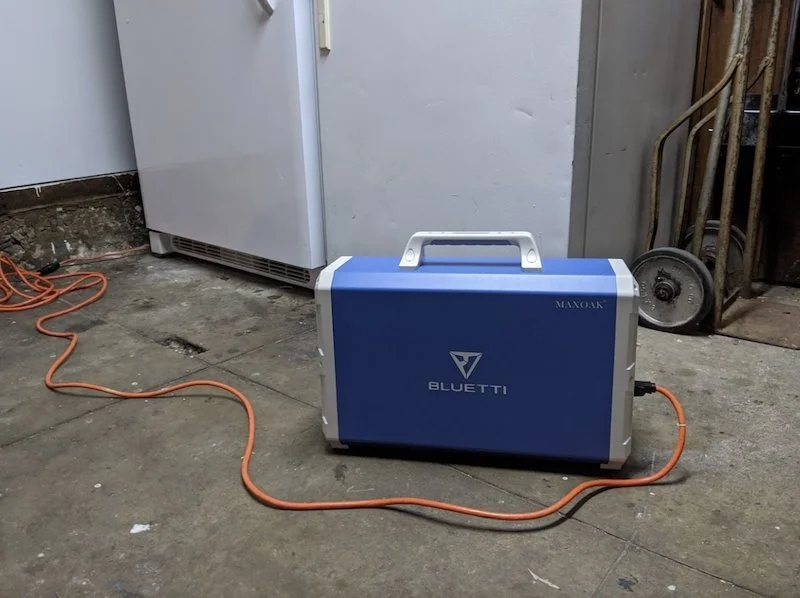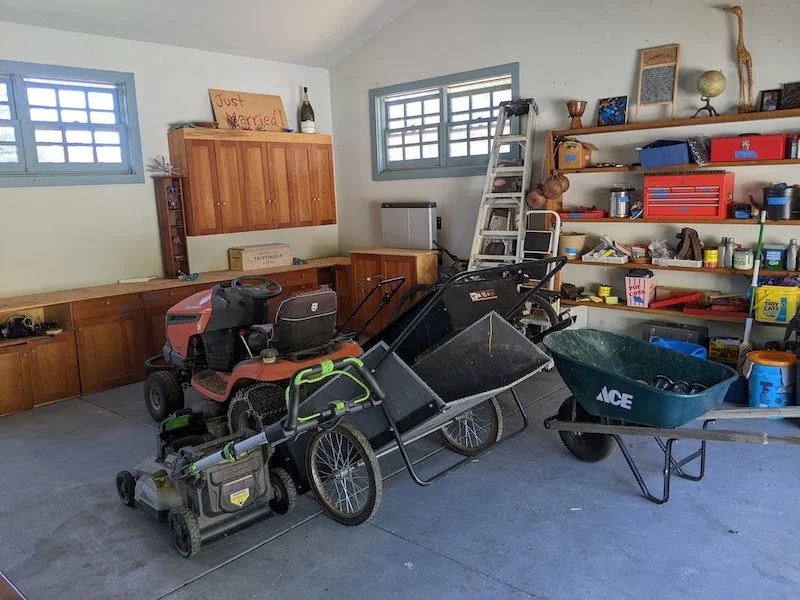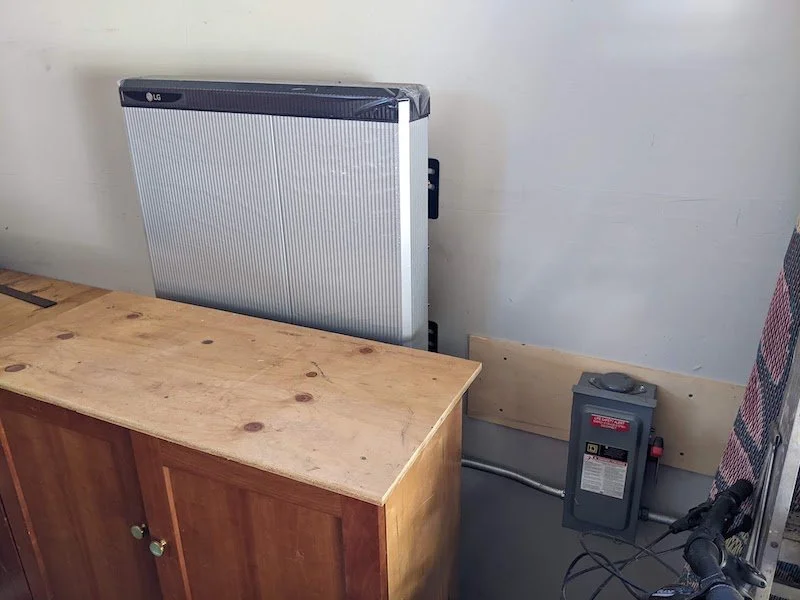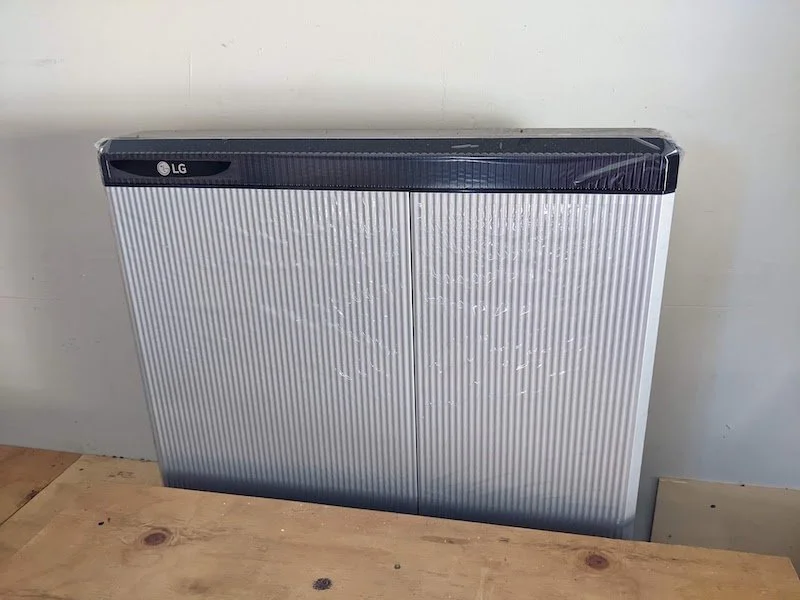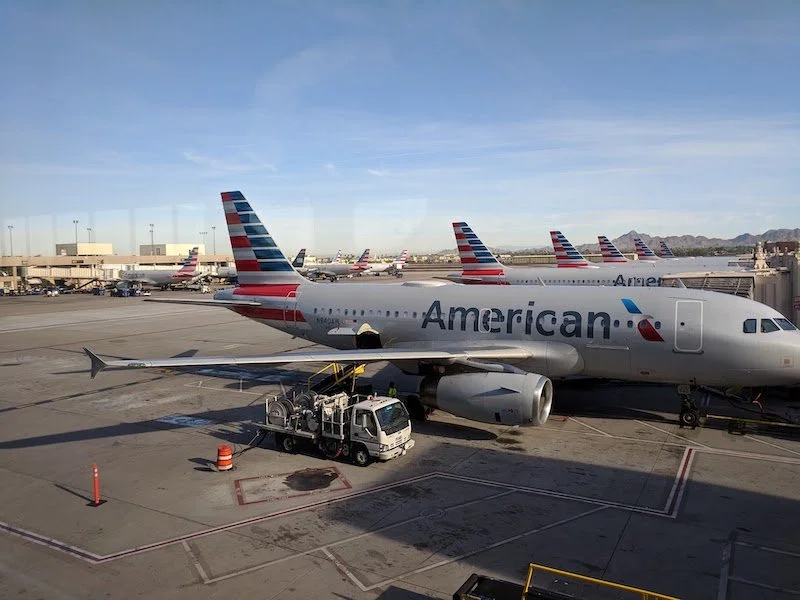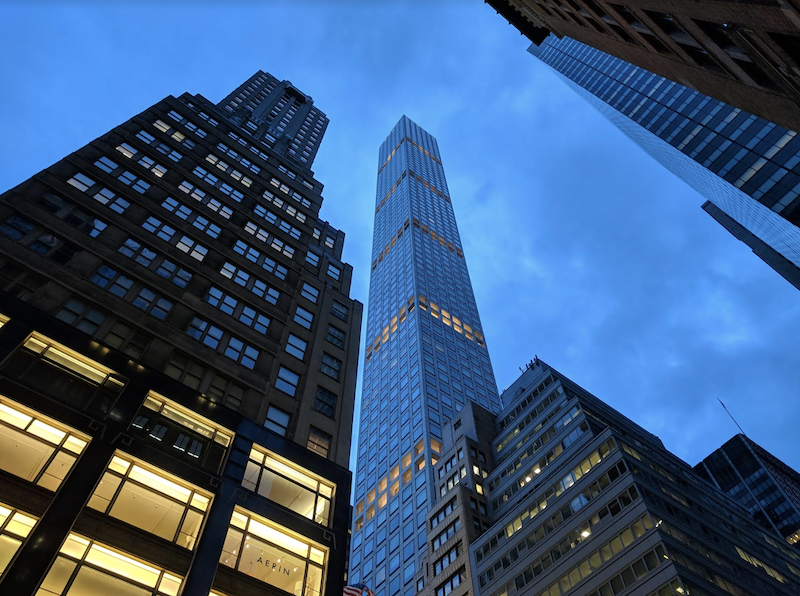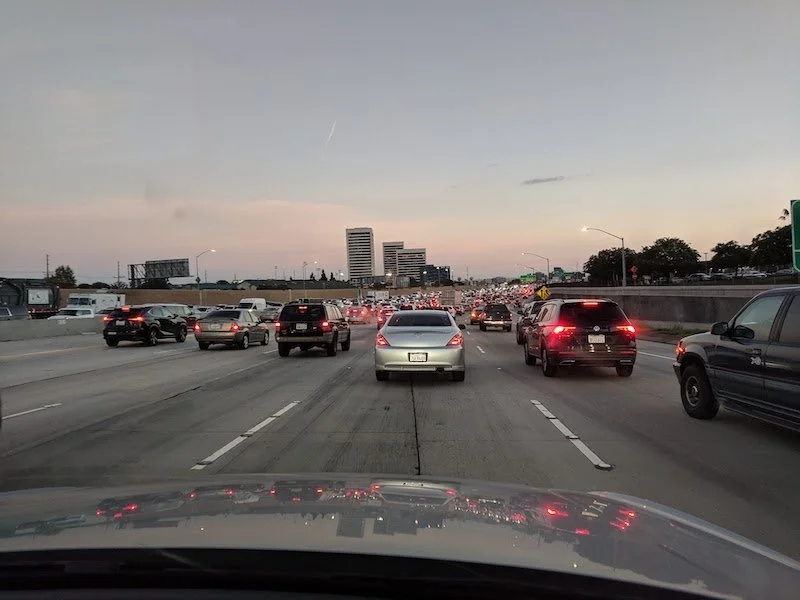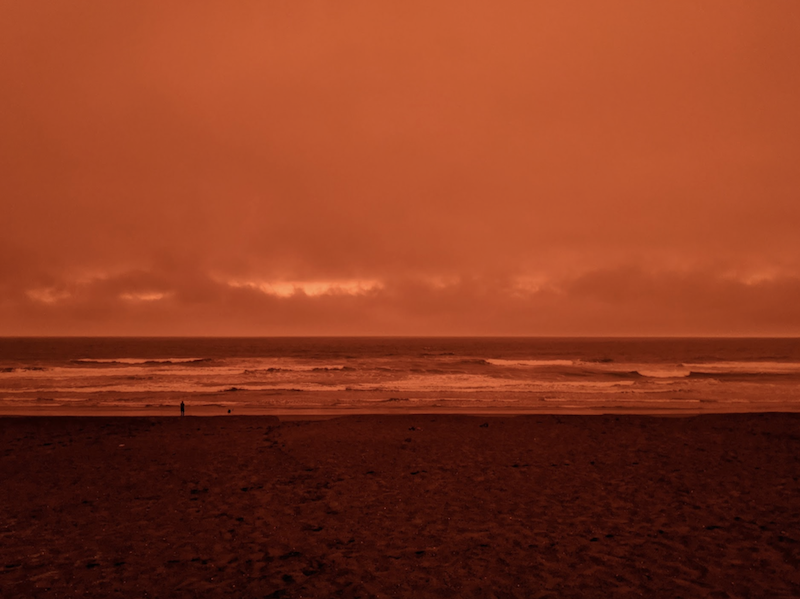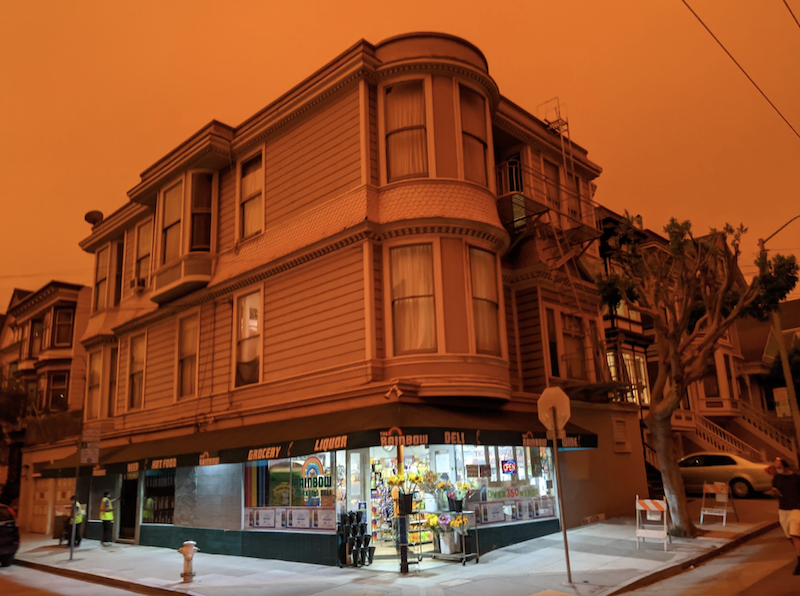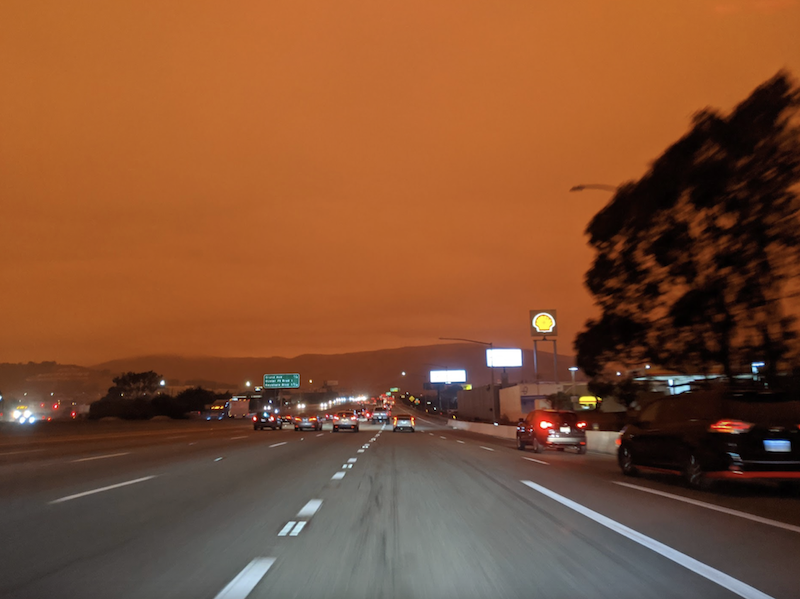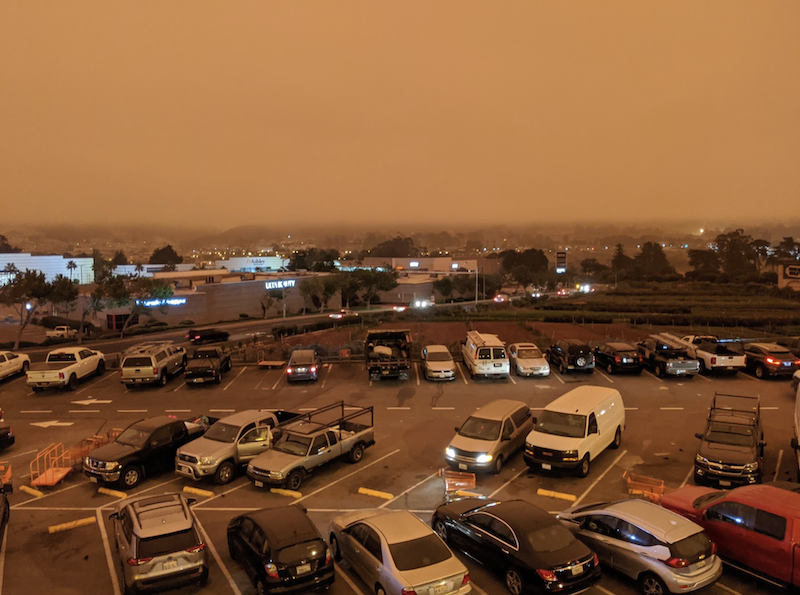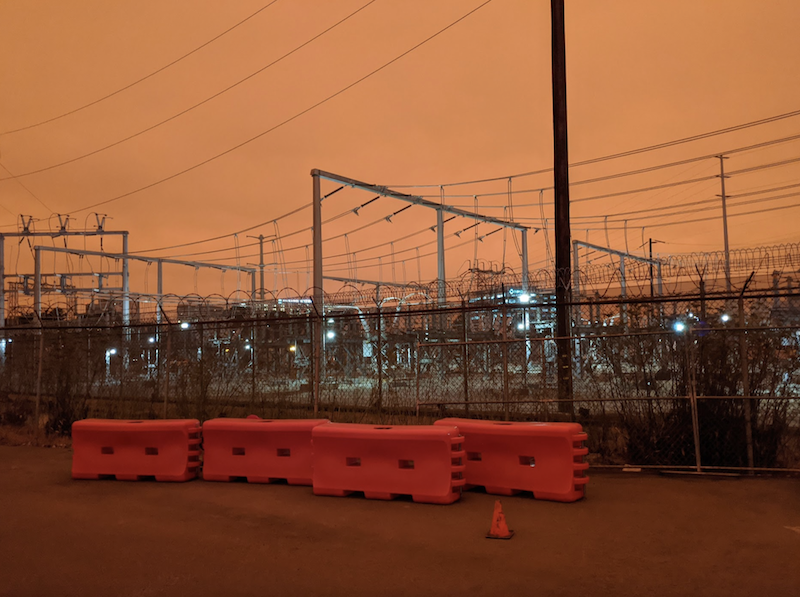Our On Again, Off Again, Infrastructure Future
Over a long summer weekend a group of the usual suspects got together and rented a cabin in the Sierra foothills about three hours east of San Francisco. It was an idyllic landscape of modest homes tucked into the forest around a small lake.
As I walked around I chatted with some of the long time locals. One woman retired there with her husband 27 years ago. They’re both still going strong. She mentioned that a couple of years ago the winter snow was particularly heavy and the power went out for two solid weeks. The neighbors came and dug them out, brought groceries, and cooked for them. It’s that kind of community. People look after each other.
I read up on the history of the place. In the 1950s three brothers inherited acreage as part of the old family farm. They decided to clear a portion of the forest and create the lake by building an earthen dam along a creek. They established a water improvement district and subdivided the land into 586 lots which were sold off to city people looking for fresh air and relaxation. Homes were built one by one by individual property owners, mostly as second homes that gradually transitioned into retirement destinations. The cost to register this new development with the state of California in 1959 was $5 per lot. For those of you familiar with the current regulatory environment… things are different now. It’s unlikely such a place could be built today - for better and worse. Regulations solved one set of problems, but created new ones.
The house my friends and I rented was built the same year I was born, 1967. It’s a simple two bed, one bath affair. There are effectively no new single family detached homes being built this small today. The economics of the building trades and property development don’t support anything at this scale other than mobile homes. But I have no doubt there are millions of potential home buyers who would be happy to buy and occupy such properties if they were available. It’s a sweet place.
The current demographic is an odd mix. Big shiny new trucks were emblazoned with Trump flags and bumper stickers that read “Liberalism is a mental illness” along with electric Teslas with stickers quoting Sinclair Lewis proclaiming “When fascism comes to America it will be wrapped in a flag and carrying a cross.” More than once I saw both kinds of vehicles parked in front of the same house.
This is convergent evolution. What everyone has in common is the ability to afford a quality vehicle and a cabin by the lake. They’re only superficially at odds. Both camps would instantly unite to oppose any new development in the area. Neither would want the character of the region to change. They would object to increased traffic congestion, and rebel against outsiders of all kinds. And each faction would aggressively demand the government bail them out if their own personal affairs wobbled for any reason, regardless of their various political convictions. Just sayin’.
While we were there the electricity went out effecting 5,000 homes and businesses. It’s a common occurrence in this rural location. Half the time we were at the lake we had no grid power. The cabin had an outdoor BBQ that ran off little propane tanks, an indoor wood stove, and several battery and solar powered lanterns. There wasn’t much need for electronic devices since there was minimal cell service in the area and the internet went down along with the electricity.
I actually felt the power cut made the experience of being at the cabin better, not worse. The usual distractions of crappy TV shows and digital everything evaporated. We had a chance to relax, enjoy long walks in nature, and talk to each other at night. It was a lovely getaway with great people in a beautiful place. The stars were so amazing in the night sky away from city lights.
I traced the electricity supply from the house meter, across the neighborhood, out onto the highway, and through the surrounding forest. Power comes from a great distance and all those attenuated wires are subject to an unlimited number of fallen tree branches, car accidents, lightning strikes, rock slides, and so on. This requires a degree of constant maintenance that’s expensive and difficult to manage. In addition to this physical reality, the state of California holds utility companies legally liable for damage caused by their equipment. So if there’s a likelihood that the electrical lines might start a fire under certain conditions, the power is routinely cut preemptively as a safety precaution.
Unfortunately, shortly after we left the lake cabin and returned to the city a collection of massive forest fires broke out across large swaths of California. The fire risk map depicts a landscape where the only places that aren’t highly likely to burn are places with no trees or wild grasses. Much of western North America is burning at the moment from British Columbia in Canada, across Oregon, down to Arizona, and out to Montana. These fires reflect a 23 year long drought that has created hazardous conditions. Meanwhile Europe is roasting with record breaking temperatures in places unaccustomed to such heat. None of this is good for the infrastructure that modern society relies on.
Shortly after we settled in back home the power went out on our block in San Francisco. This is an ever more frequent occurrence. These power cuts usually only last a few hours. But recently the lights were out from 9 in the morning until 11 at night. The internet also stops intermittently, sometimes just for half an hour, but sometimes all day.
The utility workers I spoke with explained that many of the water pipes, communications cables, and electrical wires are over a century old. They’re beginning to fail and replacing them is complicated. Often a new section of pipe or wire can’t easily be installed because the old stuff at either end crumbles during the replacement process. It’s a bit like pulling on a thread from an old sweater. Everything is attached to everything else and it all unravels. There’s a shortage of electrical transformers, pipes, and cable. New equipment is sometimes hard to source due to supply chain disruptions. This is all made more difficult as demand for more power continues to increase.
I’m not interested in complaining. This isn’t a local or even a state wide situation. We’re seeing these difficulties with the power grid in Texas and Europe many other places as well. Assigning blame doesn’t bring the lights back on. Instead, I’ve steadily built up my own household resilience. There are flashlights and rechargeable lanterns in each room, a dozen portable battery bricks for cell phone charging and laptops, backup batteries for the desktop computer and internet router, and a generous supply of water and propane cylinders for the BBQ just in case we ever need to do some impromptu staycation glamping.
I have six solar panels on the roof that aren’t connected to anything. I dropped a couple of wires down the back of the building, slipped them into my kitchen window, and plugged them into a portable inverter batter. That battery is enough to keep the essentials like the big freezer in the garage going pretty much forever. This arrangement can’t power the whole apartment, but I don’t need to run the dishwasher or toaster during a blackout. It’s good enough, affordable, and didn’t involve any administrative friction.
My latest acquisition is a small portable propane generator that runs on the same fuel tanks I already have on hand for the BBQ. If we experienced a prolonged power outage during a period of intense heat or cold - particularly if the sun were blocked by smoke or clouds - this would come in handy. This generator is enough to power a window mounted air conditioner or a couple of portable electric heaters. The generator could also top up the batteries I already have on hand. In all likely hood I could probably run the generator for just a few hours a day and still have a respectably functional household.
The state of California has already passed legislation that will make internal combustion engines illegal by 2035 and phase out new sales of small engines like lawn mowers much sooner. That would include propane generators. It’s part of a larger plan to reduce pollution and accelerate the transition to renewables like solar, wind, hydro, and various forms of energy storage. “Electrify everything” is the new slogan.
Household batteries are expected to be one piece of the larger puzzle. I have friends who already installed them. These are great for managing grid-tied electricity flows to even out peak demand, lower household energy bills, stabilize the variability of the grid system, and provide a few hours of power during short term blackouts. But they are no substitute for the kind of 24/7 supply Americans are used to if the grid experiences prolonged difficulties. And these batteries are expensive. Over time mass production will make them more affordable, but they still wouldn’t be sufficient for a two week long disruption in winter.
Personally, I don’t believe our current society can persist in its present form without massive amounts of fossil fuels. I’ve done lots of research and listened to people who are far more knowledgable on the subject than I am. The problem isn’t merely physical. It’s cultural and emotional. We “could” have a civilization that runs entirely without oil, coal, and natural gas, in the same way we “could” run absolutely everything on nuclear power. But there’s no clear path for getting us there given our present political situation, and that theoretical new society wouldn’t look like the one we have now.
A new phrase has come into the lexicon in recent years. “Fire season.” People have their air filters in place. Travel plans are readied for when it’s time to get out of the region for a few weeks. Or it’s just a matter of sucking up the unpleasantness when no alternative is available. City people sometimes flee to the countyside. Country people are sometimes forced out of the woods. We’ve already started down the path of adjusting one step at a time to a different future world. It’s neither the Zombie Apocalypse nor a new golden age of technological fixes. There will be unexpected winners and predictable losers along the way. I’m an all-of-the-above kinda guy. But the common theme will be to learn to live a good life with less and be flexible even if you don’t like any of it.
